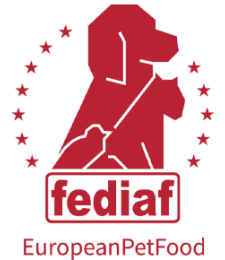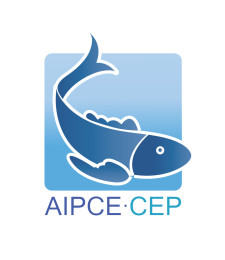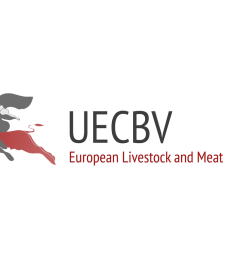Pledges
FEDIAF (2022)
Pledges

Publishing organisations:
Editorial team
Relevant countries:
Belgium
Organisation types:
Industry Associations and Chambers of Commerce
Next progression check date:
FEDIAF, the European Pet Food Industry Federation is the trade body representing the European pet food industry. We have members from 15 National Associations and 5 companies from a total of 18 countries.
Editorial team
Topics
Belgium
Industry Associations and Chambers of Commerce
-
CoC aspirational objectives
-
-
1. Healthy, balanced and sustainable diets for all European consumers
-
2. Prevention and reduction of food loss and waste
-
3. A climate - neutral food chain in Europe by 2050
-
4. An optimised circular and resource-efficient food chain in Europe
-
5. Sustained, inclusive and sustainable economic growth, employment and decent work for all
-
6. Sustainable value creation in the European food supply chain through partnership
-
7. Sustainable sourcing in food supply chains
-
Share
As a signatory of the Code of Conduct, FEDIAF will seek to support and contribute to the aspirational objectives set out in the Code, which apply to the pet food sector. We subscribe to the obligations set out for European Associations in section 1.4(a) such as to disseminate and promote the code amongst our members to encourage business transition to more sustainable practices and to explore the possibility of developing sector-specific tools and resources in support of the Code. We will also provide an annual report of our activities and will pursue the dialogue with other stakeholders and policy-makers.
Commitments by aspirational objectives:
Aspirational objective 1: Healthy, balanced, and sustainable diets for all European consumers, thereby contributing to:
1) Reversing malnutrition and diet-related noncommunicable diseases (NCDs) in the EU.
2) Reducing the environmental footprint of food consumption by 2030.
With the following aspirational targets:
a) Improved food consumption patterns in the EU.
b) A food environment that makes it easier to choose healthy and sustainable diets.
Aspirational objective 2: Prevention and reduction of food loss and waste (at the consumer level, within internal operations, and across value chains)
With the following aspirational target:
A 50% reduction of per capita food waste at the retail and consumer level by 2030 and reduced food losses along the food production and supply chains in the EU.
Aspirational objective 3: A climate-neutral food chain in Europe by 2050
With the following aspirational target:
Reducing net emissions from own operations, contributing to a 55% GHG emission reduction target in the EU food chain by 2030 (following a science-based approach).
Aspirational objective 4: An optimised circular and resource-efficient food chain in Europe
With the following aspirational targets:
a) Improved resource efficiency within own operations, contributing to sustainable, efficient use and management of energy and natural resources in operations by 2030.
b) Improved sustainability of food and drink packaging, striving for all packaging towards circularity by 2030.
Aspirational objective 5: Sustained, inclusive, and sustainable economic growth, employment, and decent work for all
With the following aspirational targets:
a) Improved resilience and competitiveness of companies operating at any point along the food value chain by 2030.
b) Quality jobs, skilled workforce, and safe and inclusive workplaces for all.
Aspirational objective 6: Sustainable value creation in the European food supply chain through partnership
With the following aspirational targets:
a) Improved resilience and competitiveness of companies operating at any point along the food value chain by 2030.
b) Continued progress towards sustainable production, contributing to sustainable management and efficient use of natural resources by 2030 and improved animal welfare.
Aspirational objective 7: Sustainable sourcing in food supply chains
With the following aspirational targets:
a) Transformed commodity supply chains that do not contribute to deforestation, forest degradation, and destruction of natural habitat and which preserve and protect high-value ecosystems and biodiversity.
b) Improved social performance in (global) food supply chains.
Documents
Comments (0)
See also
-
4
AIPCE CEP (2021)
Publishing organisations: AIPCE CEP
Relevant countries: Belgium
Organisation types: Industry Associations and Chambers of Commerce
Next progression check date:
- Categories
- 2. Prevention and reduction of food loss and waste 3. A climate - neutral food chain in Europe by 2050 4. An optimised circular and resource-efficient food chain in Europe +3 more
-
2
UECBV (2021)
Publishing organisations: UECBV
Relevant countries: Belgium
Organisation types: Industry Associations and Chambers of Commerce
Next progression check date:
- Categories
- 2. Prevention and reduction of food loss and waste 3. A climate - neutral food chain in Europe by 2050 4. An optimised circular and resource-efficient food chain in Europe +3 more
-
3
European Association of Fish Producers Organisations (2021)
Publishing organisations: European Association of Fish Producers Organisations
Relevant countries: Belgium
Organisation types: Industry Associations and Chambers of Commerce
Next progression check date:
- Categories
- 2. Prevention and reduction of food loss and waste 3. A climate - neutral food chain in Europe by 2050 4. An optimised circular and resource-efficient food chain in Europe +3 more



